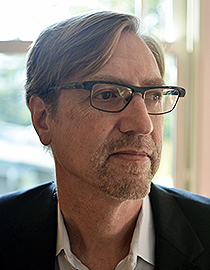New Berkeley center to explore critical issues at intersection of politics, economy
Research will focus particularly on four themes: capitalism and democracy, environment and climate, technology and inequality
February 13, 2023

The new Berkeley Economy and Society Initiative will focus on four themes: capitalism and democracy, environment and climate, technology and inequality.. (iStock image)
A new UC Berkeley center will convene top scholars and students across a range of disciplines to conduct high-level research on critical social challenges at the intersection of politics and economics.
Funded by a five-year, $10 million grant from the William and Flora Hewlett Foundation, the new Berkeley Economy and Society Initiative (BESI) aims to deepen scholarship on the vitally important interplay between economic and political systems in the U.S. and worldwide. Research will focus particularly on four themes: capitalism and democracy, environment and climate, technology and inequality.

Paul Pierson (Photo by Tracey Goldberg)
Paul Pierson, a nationally influential Berkeley political scientist and author, has been named the center’s first director.
BESI is being launched “at a time when there are well-grounded concerns about the ability of political and economic systems to promote human flourishing, and about their capacity to cope with such massive challenges as climate change, the emergence of disruptive technologies, high and rising income and wealth inequality, and the increasing fragility of many democracies,” Pierson said.
“The initiative also emphasizes the need to consider the role of unequal economic, political and social power in shaping how societies respond — or fail to respond — to these challenges.”
The issues are well-known — indeed, they’re in the news every day — but for decades, society has been deeply divided on how to solve them. To generate new understanding, BESI will rely on collaboration across a range of fields including economics, social science, law, public policy and history.
“Political economy, which brings the social and political into the analysis of the economy, is a vital lens through which we can understand an increasingly complex world,” said sociologist Raka Ray, dean of the Division of Social Sciences. “BESI will provide the opportunity to bring Berkeley’s most exciting scholars together to engage crucial issues of power and inequality in the economy in a deep and thorough way.”
We’re proud to be part of the Berkeley Economy and Society Initiative (BESI), a new hub for political economy at @UCBLettersSci funded by the @Hewlett_Found, with clusters on capitalism and democracy, environment and climate, technology, and inequality. https://t.co/SODPTz7Iy1
— SocialScienceMatrix (@SocSciMatrix) February 9, 2023
The Hewlett Foundation has fashioned an ambitious program to understand and critique neoliberalism, the political and economic ideology that became dominant in the U.S. and much of the world starting with the election of President Ronald Reagan in 1980.
Neoliberalism, defined simply, elevates the role of the free market and deregulation and is highly critical of the role of government in addressing social and economic issues.
“From skyrocketing wealth inequality to the climate crisis to systemic racism, neoliberalism offers no credible solutions for society’s biggest challenges,” the Hewlett Foundation says on its website. “We need more than just new policy ideas to confront these seismic issues, we need a major shift in the underlying terms of debate about the economy and society.”
Berkeley already has strong multi-disciplinary programs in political economy, Pierson said, and BESI will further enhance the education and training of undergraduate and graduate students.
The new Berkeley Economy and Society Initiative is quartered in Berkeley’s College of Letters and Science, and will receive support from the Berkeley Social Science Matrix.